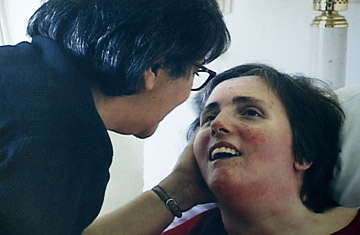
Before the plight of Terry Schiavo consumed national headlines, most Americans were fortunate enough not to know the definition of "permanent vegetative state" — the term for a severely brain-damaged patient who has lost nearly all cognitive function while maintaining lower-level brain functions such as breathing and responding to certain stimuli. Schiavo, who collapsed in her home in 1990 from heart failure, slipped from a coma into a persistent vegetative state. After she had been kept alive on a feeding tube for more than 10 years, her husband Michael petitioned to be allowed to take her off life support. Her family strenuously objected, and social conservatives — concerned the case would set a precedent for the right-to-die movement and disturbed by a series of videos that appeared to show Schiavo responding to questioning and examination by doctors — rallied to their cause. Pat Robertson called the removal of her feeding tube "judicial murder," while then–House majority leader Tom DeLay described it as an "act of medical terrorism." Brother Paul O'Donnell, a Franciscan monk and spiritual adviser to Schiavo's parents, called the act a "modern-day crucifixion." On March 18, 2005, despite emergency congressional legislation that threw her case into federal court, doctors unplugged Schiavo's feeding tube; she died on March 31.